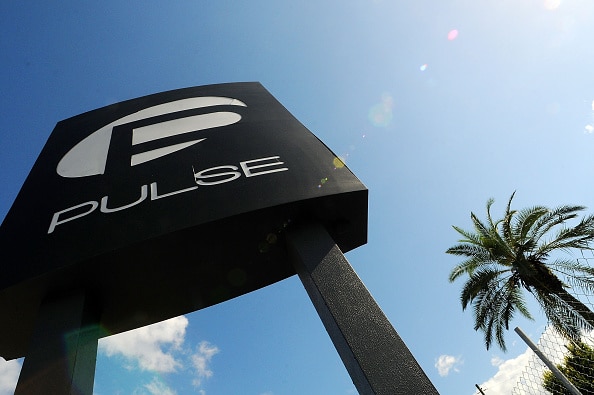Create a free profile to get unlimited access to exclusive videos, breaking news, sweepstakes, and more!
Criminologist And FBI To Journalists: Stop Naming Mass Murderers
FBI: "We’re trying to reach out to media and make them aware and encourage them whenever possible to try to employ more responsible coverage of these events to try not to glamorize the subjects."

Adam Lankford, a criminal justice professor at the University of Alabama published a recent report in the American Behavioral Scientist pleading for journalists to stop naming and publishing photos of mass shooting suspects. Lankford said that reporters shouldn’t stop publishing all other details of such events.
“It is important to report the details of the attacker’s behavior because those details can be important for understanding warning signs,” he told the Journalist’s Resource. “It is important to understand them and it’s important that the media reports on them [mass shootings].”
However, he said that the mass murderers themselves crave infamy and that they shouldn’t be given what they want.
“More recently, the Orlando nightclub shooter admitted that he was inspired by the [2013] Boston Marathon bombers. This was only possible due to the amount of media coverage the Boston bombers received,” Lankford told the Journalist’s Resource.
Lankford also stated that the living brother behind the Boston Marathon bombing received “nearly $10 million in free publicity during the month of his attack, which was more than almost any other American celebrity during that time.”
The year of the bombing, Rolling Stone put his face on the cover of their magazine.
So, Lankford has a proposal, “Stop publishing the name of the perpetrator and stop publishing the photos or likenesses with the face of the perpetrator. If we said, ‘the 2016 Orlando shooter’ rather than name him, we can still report all the details of that story without any problem.”
Lankford isn’t the only expert who feels this way.
In 2016, FBI Special Agent Michelle Lee, media coordinator at the San Antonio FBI was interviewed for an Irish publication.
“We’ve observed…many potential attackers express a contextually inappropriate interest – or in some cases a fixation – on past attacks and attackers,” she said during that interview. “For instance, Columbine remains a frequently cited event by many attackers who seek to emulate the shooters and eclipse the number of victims.”
She and Special Agent Christopher Combs, who previously acted as the lead for efforts to combat and respond to nationwide live shooter events, formed a relationship with Texas State University after Newtown to partner up for the “Don’t Name Them” campaign, which aims to influence media to report responsibly on mass shootings.
“We’re trying to reach out to media and make them aware and encourage them whenever possible to try to employ more responsible coverage of these events to try not to glamorize the subjects,” she said. “And a part of that is to avoid saying their names [of the shooters] and putting them in a position where others may feel that they would give them a platform or a venue to attract a lot of attention and infamy.”
Right now the FBI’s study on whether or not the media’s portrayal of violent shooters could inspire others to violent acts has been mostly based on anecdotal evidence, but Lee added: “because we feel like we have observed enough information, we think that it is something that takes place."
[Some sections of this post have been republished from Hamburgers N' Heroin]
[Photo: Getty Images]


